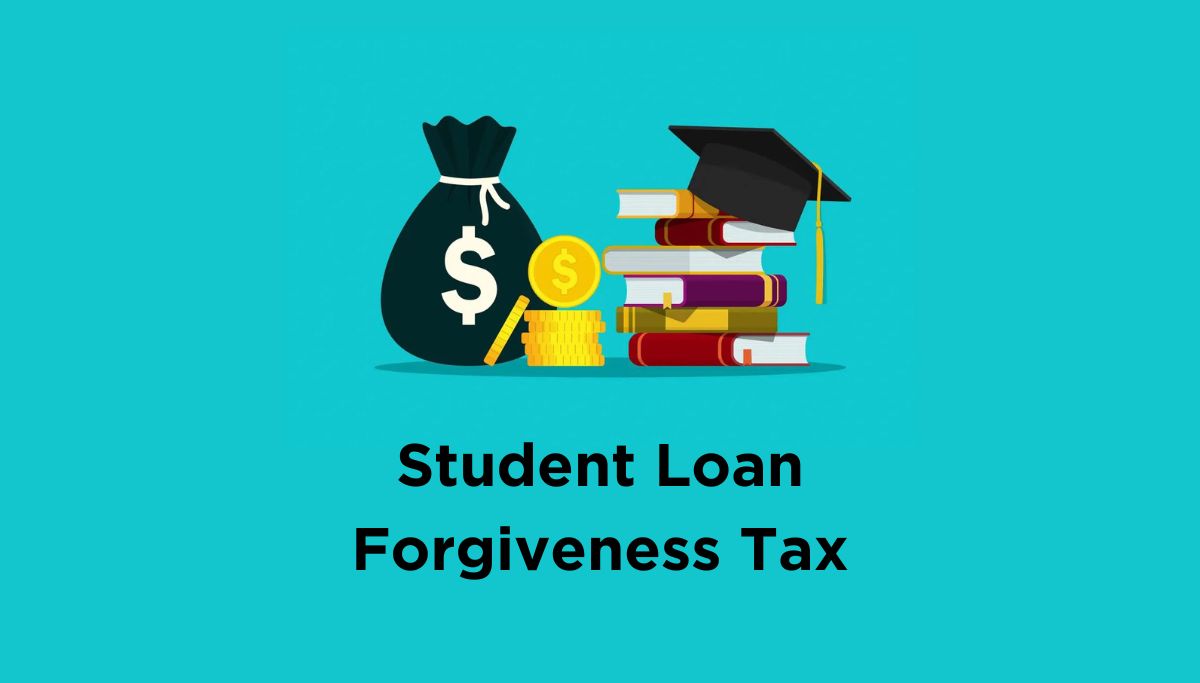Table of Contents
It’s uncertain how the Biden Administration will respond to calls to implement a new student debt cancellation policy. But, whether borrowers obtain a debt discharge as a result of new legislation or an existing programme, here’s what to think about in terms of how the student loan forgiveness tax liabilities, according to myFICO.
On the surface, receiving $50,000 in student debt cancellation may appear to be a fantastic opportunity. However, if the federal government considers those forgiven amounts to be taxable income, you may find yourself owing the IRS an additional $10,000 or more (depending on your tax rate) on your next tax return.
The sort of student debt forgiveness you get typically determines whether or not it is tax-free. However, recent congressional legislation has temporarily expanded the possibilities of getting student loan forgiveness tax-free. Here’s what you should know.

What Kinds of Student Loan Forgiveness Are Tax-Free?
According to the IRS, if debts are “cancelled, forgiven, or discharged for less than the amount you must pay, the amount of the cancelled debt is taxable, and you must record the cancelled debt on your tax return for the year in which the cancellation occurs.”
However, there have always been exceptions to this norm, particularly when it comes to paying taxes on student loan forgiveness. For example, 26 U.S. Code 108 stipulates that student loans can be repaid tax-free if they attend programmes that “encourages its pupils to serve at vocations with unmet needs or in areas with unmet needs.”
This means that the majority of occupation-specific tax-free student loan forgiveness
under federal law. This includes the Public Service Loan Forgiveness Program (PSLF), the Teacher Loan Forgiveness Program, and the Perkins Loan Cancellation Program.
Student debt cancellation for a certain profession isn’t the only sort of student loan forgiveness tax that is automatically deducted from income on federal tax returns. Closed school discharges, fake certification discharges, and underpaid refund discharges are other significant outliers.
When Does Student Loan Forgiveness Count As Taxable Income?
The most noteworthy sort of taxable federal student loan cancellation is forgiveness granted at the end of an income-driven repayment (IDR) plan. There are currently four IDR plans:
- Pay As You Earn (PAYE)
- Revised Pay As You Are (REPAYE)
- Income-Based Repayment (IBR)
- Income-Contingent Repayment (ICR)
Borrowers will obtain forgiveness on any leftover amount after 20 to 25 years, depending on the IDR plan they join. If a borrower’s income was relatively low over the 20- to 25-year payback period, the amount remaining to be forgiven may be significant.
Such forgiven sums would ordinarily be deemed taxable income under existing tax regulations. In addition to IDR forgiveness, federal student loan discharges due to death or disability have previously been treated by the IRS as taxable income.
Now’s the right time to secure a safe education loan! Fill the form in this blog TODAY!
Are All Federal Student Loan Forgiveness Tax-Free Right Now?
Yes, the Biden Administration’s American Rescue Plan, signed into law in March 2021, provided an income tax exemption for all federal student debt discharges through December 31, 2025.
This new exception makes IDR forgiveness, as well as any other sort of student debt cancellation received from the federal government, tax-free. It’s worth noting that the Tax Cuts and Jobs Act already made death and disability discharges tax-free until 2025.
It is critical to recognise that the new legislation established by Congress only has a direct impact on the federal student loan forgiveness tax. You may still owe state income taxes on the cancelled debt, depending on where you live.
While the majority of states that levy a state income tax adhere to the federal government’s definition of adjusted gross income (AGI), several do not. To discover more about how student loan forgiveness may affect your state tax bill, contact your state’s Department of Revenue or a tax specialist.
How Does Bankruptcy Affect The Taxability Of Student Loan Forgiveness?
Insolvency is another exception that might reduce the effects of student loan forgiveness tax. The “insolvency rule,” which applies to any cancelled debt, not just student loans, has been a cornerstone of the IRS tax code for decades.
The IRS considers debtors insolvent when their entire liabilities exceed the total fair market value (FMV) of all their assets. Insolvency can also decrease or, in some situations, totally remove the tax burden of debt cancellation.
For borrowers who have just achieved debt cancellation, the IRS provides an insolvency worksheet. To finish the worksheet, add all of your debts (credit cards, vehicle loans, personal loans, college loans, and so on) as well as the FMV of your existing assets (bank accounts, retirement accounts, tangible assets, etc.).
Assume you have $25,000 in assets and $50,000 in total obligations, resulting in a $25,000 insolvency. Next, let’s imagine you get a $20,000 student loan cancellation. Because your bankruptcy before cancellation ($25,000) was more than the amount cancelled ($20,000), the full amount would be exempt from taxation.
However, in the preceding example, let us imagine that $40,000 of your obligations are student loans and you obtain cancellation for the whole amount. In this situation, you must include $15,000 of the cancellation in your taxable income since you cannot exclude more than the amount for which you are insolvent. Here’s how it works:
$40,000 (discharged debt) minus $25,000 (insolvency amount) equals $15,000 in taxable income.
In Conclusion
Until 2025, all student debt forgiveness and discharges are free from federal income taxes. But what if you just joined an IDR plan and won’t be eligible for forgiveness for another 10, 15, or 20 years?
In these instances, there’s a good probability that whatever pardon you obtain at the time will be treated as taxable income by the IRS. The good news is that you have plenty of time to prepare. And the sooner you start saving for a potential “tax bomb,” the easier it will be to do so without straining your budget.
Assume you hope to obtain $50,000 in forgiveness over the next 16 years and expect to owe $5,000 in taxes on the forgiven amount. You would only need to set away roughly $26 every month if you started saving immediately.
Borrowers should also keep an eye on future student loan legislation, particularly between now and the end of 2025. Before the interim provisions expire, Congress might act to make student loan forgiveness tax-free.
PS: If there’s anything more you’d like us to know about. Add it to the comments section!
Thank you for reading this blog on ‘How To Deal With Student Loan Forgiveness Tax’. If you’d like to read more, here are some blogs that might be of interest to you:










0 Comments